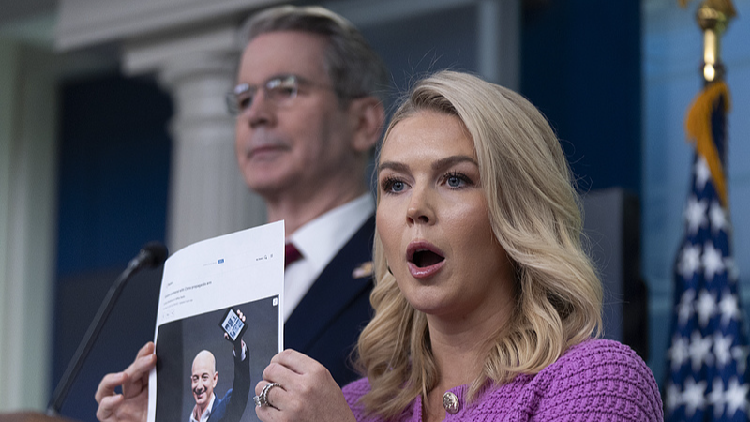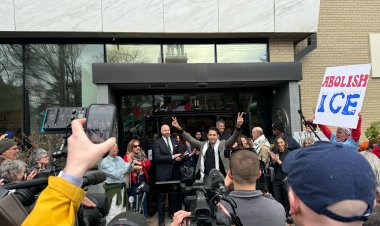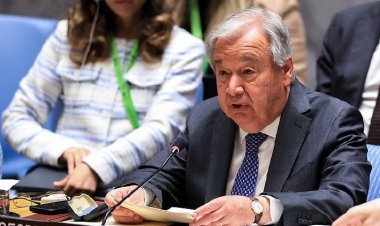Amazon Retracts Tariff Pricing Strategy
On Tuesday, Punchbowl News reported that Amazon plans to incorporate the tariff costs implemented during Trump's administration into the price of each product.

The Seattle-based retailer spent a turbulent morning refuting a report from Punchbowl News, which suggested it intended to highlight the effects of tariffs on Amazon.com. While it admitted to having considered displaying tariff information for select affordable products sourced from China on its Haul platform, it ultimately decided against proceeding with the idea.
This initial confusion led to a 2-percent dip in Amazon shares after White House Press Secretary Karoline Leavitt labeled the proposed pricing strategy as "a hostile and political act by Amazon."
"Why didn't Amazon do this when the Biden administration hiked inflation to the highest level in 40 years?" Leavitt questioned during a press briefing alongside U.S. Treasury Secretary Scott Bessent, urging Americans to "buy American."
Earlier that day, Punchbowl News had reported that Amazon was planning to include the tariff costs imposed during the Trump administration as part of the pricing for each product.
"Amazon doesn't want to shoulder the blame for the cost of President Donald Trump's trade war. So the e-commerce giant will soon show how much Trump's tariffs are adding to the price of each product," the article stated, citing an unnamed source familiar with the alleged initiative.
According to a White House official, Trump reached out to Amazon founder and executive chairman Jeff Bezos to express his concerns about the Punchbowl News report.
"Jeff Bezos is very nice," Trump remarked to reporters. "He solved the problem very quickly. He did the right thing."
Trump's administration has imposed a significant number of tariffs on U.S. trading partners, particularly China, which has experienced a 145 percent increase in tariff costs since Trump took office, prompting many businesses to reevaluate their strategies.
Retailers have raised alarms about the added expenses resulting from tariffs. Earlier this month, executives from Best Buy revealed that new tariffs "could increase costs, disrupt our supply chain and/or impact the availability of underlying technology critical to our operations."
Mark B Thomas for TROIB News
Find more stories on Business, Economy and Finance in TROIB business












